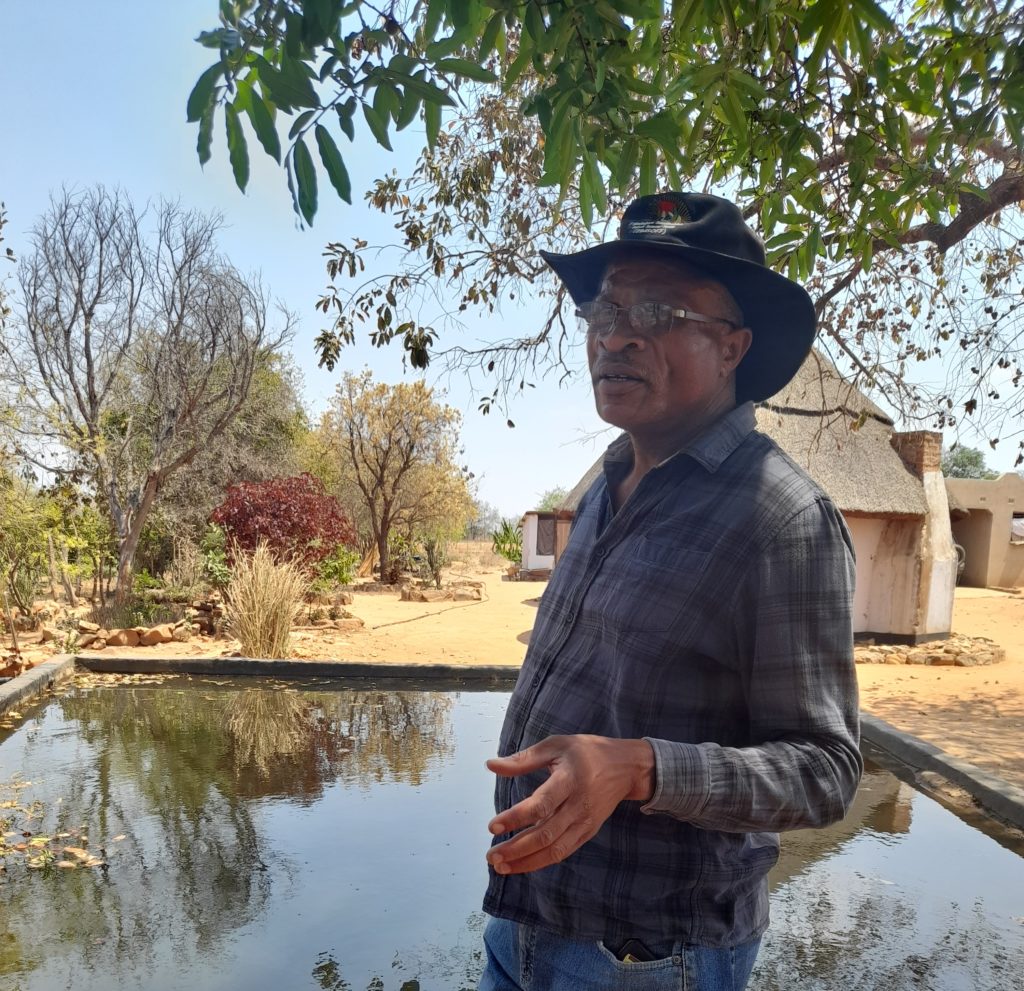By Sukuoluhle Ndlovu
Masvingo – The natural ecosystem is being destroyed each and every day due to some agricultural practices by farmers, and in a bid to fight against this, agroecology has been the solution proposed to make sure the environment is protected.
Agroecology may contribute to the critical reframing of social ecological relationships and how this might in turn improve the fragile environments within rural communities.
Agroecology experts and enthusiasts in the country say it is the best for sustainable food security, nutrition, resilience all while combating the effects of climate change.
In an interview with Bustop TV, Dr Maria Goss, Agriculture Systems and Innovation Leader at Practical Action said: “Agroecology is not a short term solution, it is an approach that integrates the ecosystem and makes sure we do not abuse one natural resource over the other. To ensure we have climate change adaptation for example in areas like Masvingo and Matabeleland South is very dry, so when using agroecology we can then bring in water harvesting technologies where we can make these man made boreholes, wells and protect water sources and divert the water we get into a storage unit. Diverting the water will help prevent gullies, soil erosion, dongers, and further destroying the cropping area.”
She added: “The conventional way of farming unlike agroecology is more on instant results at the expense of destroying biodiversity, as we are using synthetic pesticides and fertilizers hence we can use natural ways of enhancing soil fertility by using different crop variants and different biological insects to control.
“Use of chemicals continuously pollutes the environment and the underground sources and even the open water bodies as water that runs off is carried into these water bodies. Agroecology will then look into how we can reduce the amount of synthetic input which we use, we need to use the inputs in a reasonable manner which will not reduce the ecosystem. There is a need to use the natural resources we have to make sure the environment is protected.”
Masvingo District Agritex officer, Eliphas Mugari said agroecology will help protect and preserve the ecosystem.
“It protects the land against degradation at the same time protecting and conserving the natural ecosystem. With agroecology we can best recycle waste products and be used as an input and retain its natural state the land had before. There is a need to reduce the inputs we use that destroy the beauty of the land, there is a need to fight continued land degradation, as this affects people living on the land, animals and crops. With agroecology we want to improve rural livelihoods and that is why we are campaigning for farmers to adapt to it,” he said.
Edwin Mazhawidza, the Programs and Resource Mobilisation Manager of Fambidzanai said agroecology improves yields and is self-sustainable. Fambidzanai is a local organisation that takes interest in agroecology and equips farmers to adopt it as a farming method.
“Farmers can make the inputs on their own and there is self-reliance. This ends the dependency syndrome on donors and the government among farmers,” he said.
A veteran farmer in Shashe, Masvingo, Nelson Mudzingwa who has been practising agroecology for decades proposed that agroecology be used nationwide as it is “the response to preserving the environment.”

Mudzingwa said: “We want to bring in the traditional methods and there should be synergies in the agroecology practices and bringing in the traditional practices into the medical field. The ecosystem needs to be preserved and we have to do this by preserving the resources we have.”
Agroecology is already being implemented in Shashe Ward 33. The farmers in this area represent farmers practicing organic traditional and agroecology in Zimbabwe.
A press release by the Climate Justice and Agroecology in Southern and Eastern Africa stated that organic farming methods and agroecology are part of building collective action to promote and achieve climate change adaptation.
‘This article was produced with the financial support of WAN-IFRA Media Freedom. Its contents are the sole responsibility of <Sukuoluhle Ndlovu/BustopTV> and do not necessarily reflect the views of the WAN-IFRA Media Freedom,WAN-IFRA FR, or the Ministry of Foreign Affairs of Denmark.’
